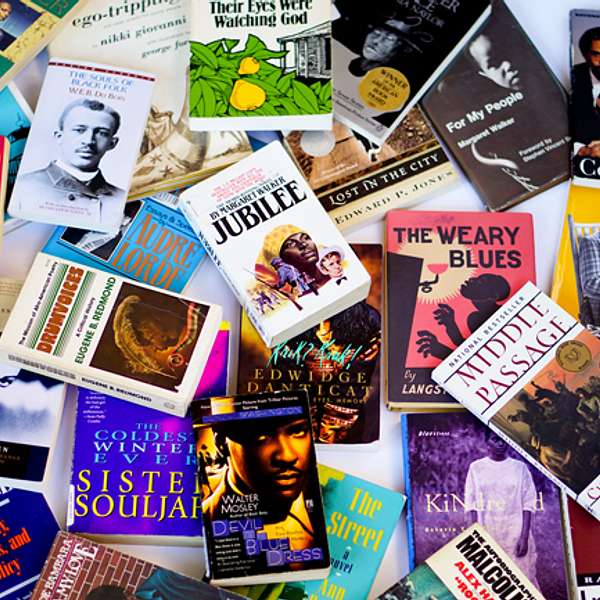
Remarkable Receptions
A podcast about popular and critical responses to African American novels, artistic productions, and more.
Remarkable Receptions
The Rise of Afrofuturism in the 1990s -- ep. by Howard Rambsy II
A brief take on how Alondra Nelson’s Yahoo group in the 1990s shaped the rise of Afrofuturism through discussions on race, tech, and Black culture.
Script by Howard Rambsy II
Read by Kassandra Timm
This story has been told many times, but somehow, it hasn’t been told enough.
During the late 1990s, a then graduate student named Alondra Nelson organized and facilitated a discussion group on Yahoo’s online forums about Black engagements with technology and science fiction. Nelson brought together all these people from across the US and on the other side of the Atlantic to discuss Octavia Butler, the mechanics of black music production, and all manner of technological developments.
What was the general name for the discussions? Afrofuturism.
You’re listening to Remarkable Receptions — a podcast about popular and critical responses to African American artistic productions and more.
Mark Dery coined the term Afrofuturism in 1993. But it wasn’t until the late 1990s that the term really began to gain notice as a result of Alondra Nelson’s online organizing. She used the term to frame her explorations of the intersections between race and technology, and she used the term as the basis for her discussion group.
Over on Yahoo, contributors to the Afrofuturism List, or simply the List as participants called it, had wide-ranging discussions and debates about technology and science fiction and the implications for Black people, Black culture, and Black history.
Participants discussed Black speculative fiction with the same intensity as they focused on electronic elements of music production and the development of online software and technological devices.
The List served as an incubator for the exploration and development of Afrofuturist ideas.
After a while, Yahoo groups were displaced by the development of various social media sites, and so the List ultimately fell into obscurity. Former participants pursued a variety of separate projects.
And the notion of Afrofuturism persisted and eventually gained widespread notice, seeping into popular culture in a variety of ways.
For her part, Alondra Nelson wrote two books, the 2011 Body and Soul: The Black Panther Party and the Fight against Medical Discrimination and the 2016 The Social Life of DNA: Race, Reparations, and Reconciliation After the Genome. Her books didn’t focus on Afrofuturism directly through name, but both books foregrounded race, technology, and science.
Another former participant on the List was so inspired by what he learned from Afofuturism that he taught African American literature classes focusing on Afrofuturism, and he published articles on the subject here and there. He eventually created a blog focused on literature and technology. He later produced various tech-based and digital humanities projects. Oh, and as a way of subtly extending his Afrofuturist endeavors, he created a podcast called Remarkable Receptions.
******************************************
This episode was written by Howard Rambsy. The episode was edited by Elizabeth Cali.
******************************************
This podcast, Remarkable Receptions, is part of the Black Literature Network, a joint project from African American literary studies at Southern Illinois University Edwardsville and the History of Black Writing at the University of Kansas. The project was made possible by the generous support of the Mellon Foundation. For more information, visit blacklitnetwork.org.